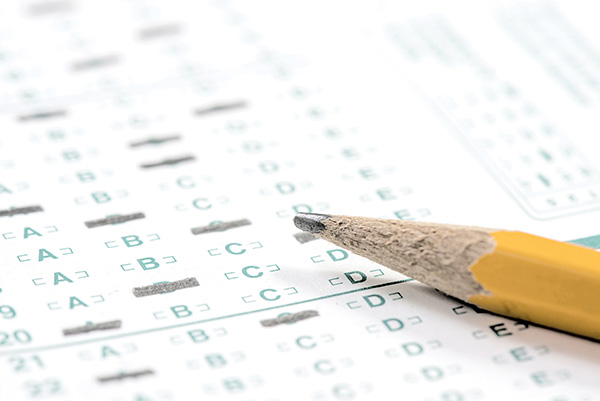
By Marlee Napurano
The cancelation of both the June SAT and ACT has compounded the complications the COVID-19 pandemic has dropped on high school juniors. As it stands now, the admission testing required by over 85 percent of American colleges and universities has been made unavailable to students since March. The SAT was canceled in March for many New Jersey students whose high school testing locations were closed due to early cases of coronavirus.
Two weeks later, once all U.S. schools had closed, the College Board, the private company responsible for the SAT, and ACT Inc., both suspended their next rounds of testing, the May SAT and the April ACT. Now, the June tests have been canceled as well. This has left hundreds of thousands of 11th graders across the country prepped for spring testing, but with no tests to take until August, at the earliest.
And the College Board and ACT Inc. have also announced that they will roll out online home tests of the SAT and ACT by this fall should social distancing still be in place.
The AP (Advanced Placement) program will serve as something of a guinea pig for the College Board’s online SAT, as AP testing will proceed in May as scheduled, but in an online at-home format. AP exams will each be offered on a primary test date and a makeup test date. They will be cut down from their normal 2-to-3-hour length to just 45 minutes. And perhaps the greatest change is that they will be open book/open note. Of course, the less time you have for an exam, the less helpful open book is, but students can certainly prepare some lean and mean reference sheets to bring to their home computers on test day.
Initially AP students were advised to stay vigilant during remote learning at home, but luckily the online AP exams have been changed to cover only material taught in the brick and mortar classroom prior to March.
Now, the AP exam program is very different from the SAT, and we cannot assume that the rollout of online APs will ensure a valid and reliable online SAT this fall. The numbers alone separate the two programs: literally 1 million more students take the SAT than take AP exams, according to 2019 data. Also, almost all AP exams include a free response, nonmultiple-choice section. These sections are graded by a legion of dedicated high school teachers who volunteer their time in reading rooms. These educators are slated to continue this work in their fields of expertise, grading remotely this year.
Bottom line: these graders are human and, if students encounter problems with the format or the platform of the online tests, human graders will observe that and make adjustments. No such luck with the computer-graded multiple-choice sections which make up 100 percent of the required SAT sections.
So much uncertainty surrounds the quality and timetable of standardized testing due to the coronavirus that more than two dozen colleges have already unhitched themselves from the SAT and ACT altogether for at least this admission cycle, going test optional for this fall.
So if some colleges are waiving the standardized testing admissions requirement for the class of 2021, should high school juniors still plan to take the SAT and, if so, what should they do to prepare? In college consulting speak, “Optional” means “Your competition did it.”
For this reason, students may want to prepare to achieve their career highs on SAT and ACT regardless of colleges going test optional so that they have yet another way to demonstrate their prowess outside the bounds of their high schools, in the national arena. Also, many schools are likely to maintain their requirement of the SAT/ACT with a healthy dose of “benefit of the doubt” for applicants.
My advice to juniors and parents is threefold:
Keep yourself ready to test whenever test dates are announced. Instead of scrambling to react to schedule changes of the College Board, keep yourself fresh with one full-length practice SAT or ACT per month and maintain the golden rule of one full-length practice test the weekend prior to any real test. Practice tests can be found in the official study guides for the SAT or ACT, as well as online. Remember, not all practice tests are created equal: always use practice tests issued by the test makers themselves for reliable results.
Register early and often. Keep your eyes open for news about the August SAT and makeups which will likely crop up all around it. Just because College Board has kept your registration fees from canceled tests as a credit to future tests does not mean you’ll be guaranteed a spot for an in-person SAT without having to drive across state lines to find test center availability. The August SAT has been increasingly popular since its addition to the roster in 2017, with many of students locked out of their local schools under nonpandemic conditions. Just think about the frenzy surrounding this year with many New Jersey students having had all three of their spring SATs canceled and the Nov. 1 Early Admission deadline looming.
If the online SAT becomes a reality this fall, train for the new format. College Board will certainly claim that they are supporting juniors with free online resources to prepare them for the new test, but these resources are likely to be released without much lead time. This will be the time to lean on your network: your guidance counselors and SAT prep specialists.
Marlee Napurano, B.A. Yale University, is co-founder of WaveLength tutoring and test prep, wavelengthsat.com.
The article originally appeared in the April 30 – May 6, 2020 print edition of The Two River Times.














